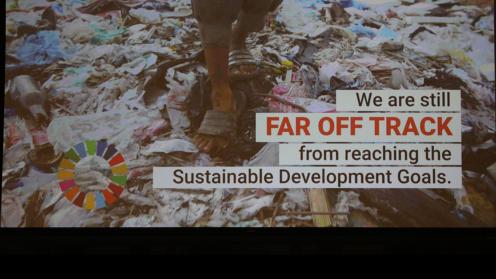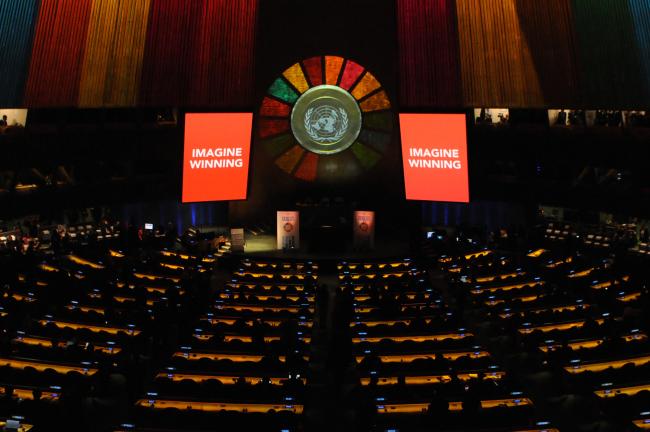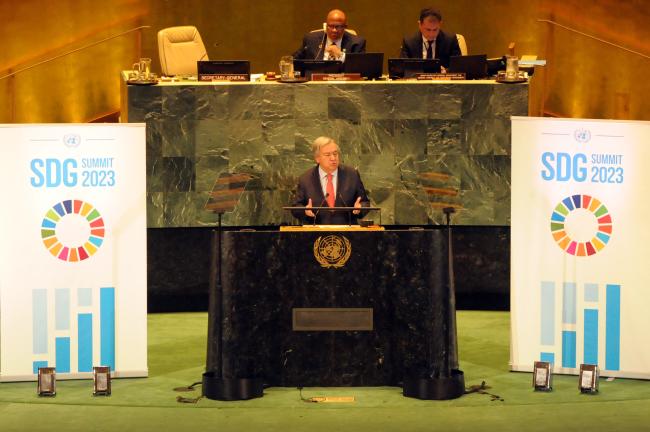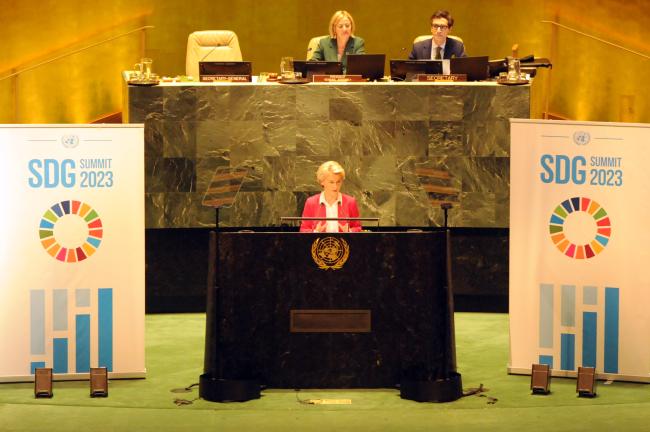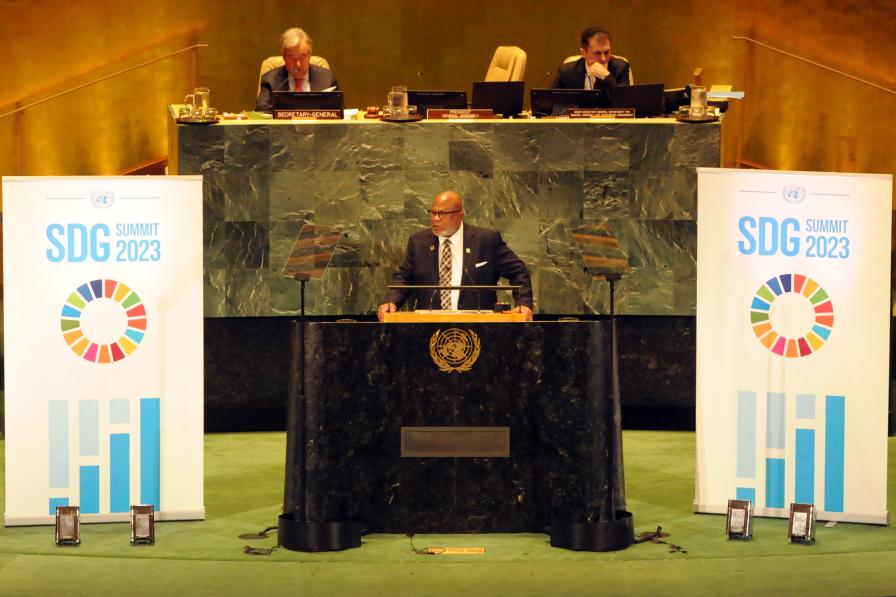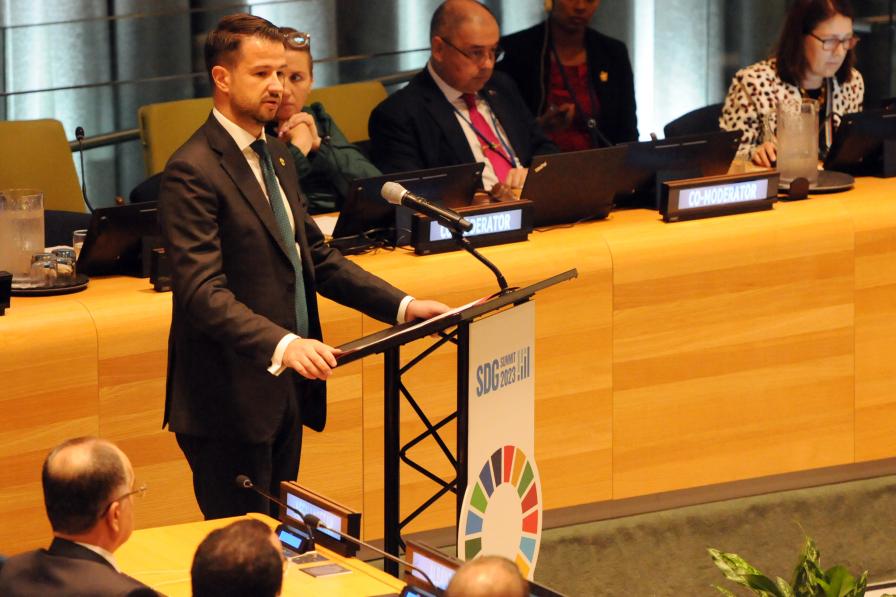The streets of New York City left no doubt: high-level dignitaries had swarmed to town for the opening of UN Summits Week. Police cut off traffic several blocks around UN Headquarters as delegates from around the world braved the rain and tightened security checks. All hoped to witness a renewed global resolve to implement the 2030 Agenda for Sustainable Development at the halfway point since its adoption in 2015.
With the Global Sustainable Development Report 2023 showing that only 15% of the Sustainable Development Goals (SDGs) are on track to be met, Dennis Francis, President of the UN General Assembly (UNGA), underscored the need for transformative action and invited Member States to announce bold commitments during the SDG Summit.
Want to dig deeper? Read the full Earth Negotiations Bulletin daily report.
UN Secretary-General António Guterres asserted that the 2030 Agenda is not a promise among diplomats but a promise to all people to “build a world of health and progress, leave no one behind–and pay for it.” Emphasizing the SDGs need a global rescue plan, he called for a stimulus plan of USD 500 billion per year for SDG implementation. He also proposed an effective debt relief mechanism and urged reforming the “outdated, dysfunctional, and unfair” international financial architecture.
Delegates then adopted the Political Declaration, whose negotiation was co-facilitated over the course of several months by Qatar and Ireland, and which will be presented to the UNGA for consideration.
The opening segment continued with statements by groups of Member States. Many noted the trajectory taken by governments to reach the SDGs has been hampered by external shocks such as the COVID-19 pandemic, Russia’s war against Ukraine, and mounting climate change impacts. Others pointed out that progress on the SDGs had stalled well before the pandemic.
Developing countries underscored that increasing indebtedness and unfavorable lending conditions have impeded their capacity to pursue sustainable development. They urged reforming the international finance architecture. Small island states advocated for using the multidimensional vulnerability index to account for more than just income-based criteria in assessing eligibility for concessional finance.
Ursula von der Leyen, President of the European Commission, called upon leaders to restore the promise that “tomorrow will be better for all than today.”
High-level dignitaries and stakeholder representatives then engaged in four Leaders’ Dialogues on:
- Scaling up actions on key transitions to accelerate SDG progress;
- Building resilience and leaving no one behind;
- Applying science, technology, innovation, and data for transformative action; and
- Strengthening integrated policies and public institutions for achieving the SDGs.
Throughout the day, various speakers emphasized the need to rebuild trust between countries and fight misinformation.
All ENB photos are free to use with attribution. For the UN Summits Week 2023 please use: Photo by IISD/ENB | Diego Noguera.
To receive free coverage of global environmental events delivered to your inbox, subscribe to the ENB Update newsletter.
Plenary Segment

Julius Maada Bio, President of Sierra Leone, on behalf of the Group of Seven Plus Member States (g7+)

Petr Pavel, Presiden of Czechia, on behalf of the Pathfinders for Peaceful, Just and Inclusive Societies
